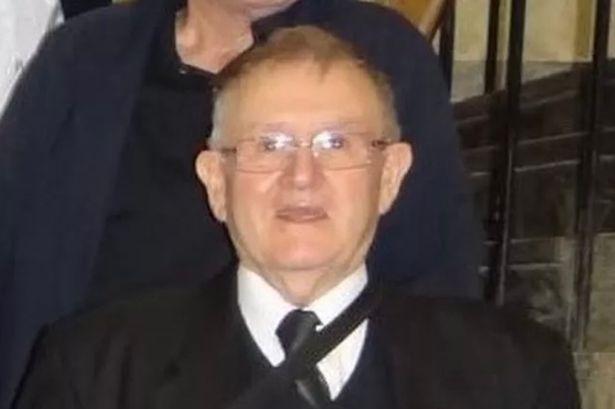On a seemingly ordinary day, 78-year-old Fred McCann found himself in a life-or-death struggle when a heart attack struck while he was showering. The sudden onset of intense chest pain and debilitating weakness left him gasping for breath, his body teetering on the brink of collapse. In that moment of sheer terror, the cold, hard surface of his bathtub became an unlikely savior. Instinctively, Fred lowered himself into the tub, the cool porcelain against his skin offering a small measure of comfort amidst the excruciating pain. The confined space of the tub also provided a sense of security, preventing a potentially fatal fall as his strength ebbed away. As the waves of pain washed over him, Fred clung to the hope that help would arrive soon.
The chilling details of Fred’s experience paint a vivid picture of the terrifying nature of a sudden heart attack. The sharp, crushing pain in his chest, often described as an elephant sitting on one’s chest, radiated outwards, making each breath a struggle. Accompanying the chest pain was a profound sense of weakness, a feeling of his body shutting down, leaving him unable to stand or even call for help. This overwhelming exhaustion, coupled with the intense pain, created a sense of impending doom, a fear that he might be experiencing his final moments. The suddenness of the attack, the sheer intensity of the pain, and the overwhelming feeling of helplessness underscore the critical importance of recognizing the symptoms of a heart attack and seeking immediate medical attention.
In recounting his ordeal, Fred emphasizes the importance of recognizing the signs of a heart attack and acting swiftly. While men and women may experience different symptoms, some common indicators include chest pain or discomfort, shortness of breath, nausea, lightheadedness, and pain radiating to the jaw, neck, or arms. He stresses that time is of the essence when a heart attack strikes. Every minute without treatment increases the risk of permanent heart damage or even death. Fred’s story serves as a powerful reminder to educate oneself about the symptoms of a heart attack and to never hesitate to call emergency services if these symptoms are suspected.
Fred’s quick thinking in lowering himself into the bathtub played a crucial role in his survival. The tub prevented a potentially catastrophic fall, which could have resulted in further injuries or complications. The coolness of the porcelain also likely helped to regulate his body temperature, which can fluctuate dramatically during a heart attack. While the bathtub itself did not treat the underlying medical condition, it provided a safe and stable environment until paramedics arrived, minimizing the risk of further harm. This underscores the importance of situational awareness and utilizing available resources to mitigate risks during a medical emergency.
The arrival of paramedics marked a turning point in Fred’s ordeal. Trained to handle cardiac emergencies, they quickly assessed his condition, administered life-saving treatment, and transported him to the hospital. At the hospital, Fred received further medical intervention, including medications to stabilize his heart rhythm and procedures to restore blood flow to the affected areas of his heart. The prompt and effective medical care he received played a crucial role in his recovery. Fred’s story highlights the crucial role of first responders and medical professionals in saving lives during critical medical emergencies.
Fred’s story is a testament to the resilience of the human spirit and a powerful reminder of the importance of prompt action during a medical emergency. His experience underscores the critical role of recognizing the symptoms of a heart attack, seeking immediate medical attention, and utilizing available resources to mitigate risks. While the bathtub served as an unlikely lifesaver, it was ultimately the combination of Fred’s quick thinking, the rapid response of paramedics, and the skilled medical care he received at the hospital that ensured his survival. His story serves as an inspiration and a valuable lesson for us all, highlighting the importance of being prepared for medical emergencies and the power of prompt and effective medical intervention. Fred’s remarkable recovery underscores the importance of never losing hope, even in the face of life-threatening situations. His experience serves as a powerful example of how a combination of quick thinking, appropriate action, and effective medical care can make the difference between life and death. By sharing his story, Fred hopes to raise awareness about heart attacks and empower others to take control of their health, emphasizing the importance of knowing the symptoms and acting swiftly when faced with a potential cardiac event.














